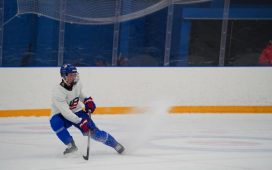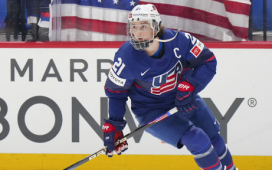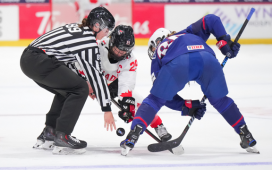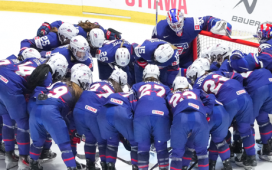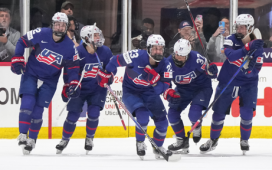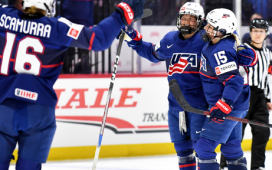The Winnipeg Jets suspended Dustin Byfuglien over the weekend for failing to report to training camp, but it was a cap-driven decision that can offer some additional financial flexibility if the blueliner isn’t back come opening night.

The Dustin Byfuglien saga began when the burly blueliner was granted a personal leave from the Winnipeg Jets. It continued when reports surfaced that the 34-year-old rearguard is contemplating retirement with two seasons remaining on his pact. And the latest bit of news broke late Saturday when TSN’s Bob McKenzie reported the Jets had suspended Byfuglien without pay for failing to report to training camp.
Unlike earlier developments in one of the more stunning stories of the summer, however, the suspension could have been seen coming. As McKenzie noted Saturday and as Winnipeg bench boss Paul Maurice further clarified Sunday, the decision to suspend Byfuglien was not in the least bit about sending a message to the player, nor was it made with any malice. Rather, it was about the dollars-and-cents business of the game. As Maurice told reporters, suspending Byfuglien was “absolutely procedural,” and Byfuglien had been made aware that the suspension was coming.
The reasoning behind the Jets’ decision is absolutely clear from a salary cap standpoint. With Byfuglien suspended, his contract comes off the books if he fails to report once the season begins and the only way his pact will impact the Jets’ bottom line is if the defender makes the decision to return to the lineup. In the short term, that appears to mean additional financial flexibility for the Jets, as they are now projected to have an additional $7.6 million with which to operate. And at first blush, that might appear a boon for Winnipeg with contracts still to be ironed out with restricted free agents Kyle Connor and Patrik Laine, not to mention a potential hole to fill with Byfuglien’s future up in the air. But it’s not that simple.
While, yes, Byfuglien’s suspension does give the Jets somewhere in the range of $23 million in cap space assuming he’s not back in the lineup on opening night, it doesn’t necessarily mean Winnipeg can freely spend on bringing back Connor, Laine or both, nor can the Jets make a swap that sees them bring in an additional player without considering what might happen if Byfuglien returns. It’s simple enough to understand why that is, too. For argument’s sake, say Connor and Laine were to sign for a combined $14 million. Then say they acquire a rearguard, adding salary in the process and exceeding the $15.5 million-or-so that was available prior to the suspension. And finally, imagine Byfuglien then makes the decision to return to the lineup. If that hypothetical scenario were to play out before the puck dropped on the regular season, Winnipeg wouldn’t have a cap compliant roster. The math simply doesn’t work out.
But the math changes once the season begins. For every day Byfuglien isn’t on the roster, Winnipeg will save in the neighborhood of $41,000 against the salary cap, which is money that can be spent elsewhere and potentially help down the line. More importantly, if Byfuglien were to return later in the campaign – say in December, a la Scott Niedermayer when he took time away from the Anaheim Ducks to decide his future during the 2007-08 campaign – his contract would be prorated. And that’s where the potential benefit lies for the Jets. For instance, if he missed the first third of the season, his cap hit for the campaign would be in the $5.1-million range. Subtract that from the $23-million cap space projection, subtract another $14 million as an estimate for Connor and Laine and the Jets are looking at the potential of adding another $2 million in salary.
The pitfall here is that Winnipeg, as far as we know, has no idea when Byfuglien might return, thus no idea what kind of contract they can add in the interim. Even still, though, what the Jets do have available to them is time. Time to assess their options, time to consider potential acquisitions and time, if Byfuglien returns, to find a way to work out the salary cap. If he chose to return one month into the campaign and the Jets had to maneuver to become cap compliant, they’d have time to operate before reinstating Byfuglien, shuffling around salary as needed or moving out a piece that needed to be moved out in order to get ‘Big Buff’ back on the blueline. Rest assured that would be the case, too: if Byfuglien wants to return, the Jets will find a way to make it happen.
So, should we expect Winnipeg to make a major move in the next week? Probably not. But once the season begins and the Jets begin to see some cap savings as a result of Byfuglien’s suspension, it’s not out of the question that Winnipeg addresses its needs in the wake of their all-star defenseman’s absence.
